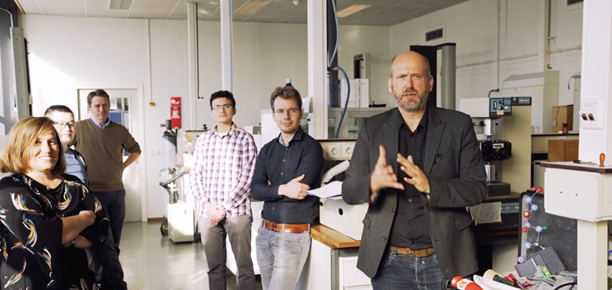Biomembraan om olie op te ruimen wint publieksprijs KIJK
Biomembraan SAVER heeft de publieksprijs voor KIJKs beste Tech-idee gewonnen. Dit membraan, gemaakt van natuurlijke stoffen, kan olie en water van elkaar scheiden en is in zijn geheel te recyclen. SAVER is ontwikkeld door polymeerwetenschappers uit de onderzoeksgroep van prof. dr. Katja Loos en onderzoekers van NHL Stenden.
Met circa 3600 stemmen liet SAVER 19 andere ideeën achter zich. In november besteedt KIJK ruim aandacht aan SAVER.
Met appelzuur vervuiling te lijf
We hebben allemaal eens beelden gezien van een enorme olievlek op zee. Die olievervuiling opruimen is nog een hele uitdaging. Onderzoekers van de RUG en NHL Stenden hebben binnen hun hybride onderzoeksgroep samengewerkt aan een oplossing. Katja Loos, Chongnan Ye, Rik Brouwer, Renato Lemos Cosse, Vincent Voet en Rudy Folkersma ontwikkelden een sterk biomembraan dat is gemaakt van de natuurlijke stof appelzuur. Het membraan is een zogeheten superamfifiel. Dat betekent dat het materiaal, net als zeep, affiniteit heeft voor zowel olie als water. Hierdoor kan het de twee van elkaar scheiden. Raken de poriën van het membraan verstopt, dan kan het volledig worden afgebroken, waarna met de gezuiverde bouwstenen een nieuwe membraan is te maken.
Meer informatie

